Iran’s revenge against Israel will be ‘calculated, forceful’: Iraqi resistance
A prominent Iraqi resistance group has underscored as “calculated and impactful” Iran’s potential retaliation of Israel's last month assassination of Ismail Haniyeh, head of the political bureau of the Palestinian resistance movement Hamas, in the capital Tehran.
Sheikh Ali al-Asadi, head of the political council of Iraq’s al-Nujaba Movement, made the statement in an interview with Iraq's al-Sumaria television network on Tuesday as he pointed to various developments across the region.
"Iran is a country that has a policy of responding through a calculated and impactful strike," Asadi said, adding, “The Iranian response will be proportionate to the aggression as it occurred on its territory, and therefore it will respond in the same way and in the same place."
The official stressed that Iraq and its resistance groups would contribute to retaliatory measures in response to the targeted killing of Haniyeh and Fuad Shukr, a senior figure with the Lebanese resistance movement Hezbollah who was killed on the outskirts of Beirut on July 30.
"Iraq is trying not to be a battlefield, but the enemy wants to impose that on it," Asadi said, adding, "The resistance will participate in responding to the assassination of Ismail Haniyeh and Martyr Shukr," since "the Iraqi resistance is part of the axis of resistance in the region."
Haniyeh, who was in Tehran to attend the swearing-in ceremony of Iran's new President Masoud Pezeshkian, alongside other Axis of Resistance leaders, was martyred in an attack on July 31.
Leader of the Islamic Revolution Ayatollah Seyyed Ali Khamenei has warned the Israeli regime of a "harsh response" for Haniyeh's assassination, calling it the Islamic Republic's duty to avenge the Palestinian resistance leader's blood.
Elsewhere in his interview, the head of the al-Nujaba Movement’s political council censured the presence of foreign occupation forces, not least the United States, in the Arab country.
“All the resistance fighters support what we see, -- that is America is an enemy and must be expelled from the country,” Asadi said. “The parliament session that approved the expulsion of foreign forces was attended by those who resist the occupation and demand its expulsion.”
Pointing to numerous Iraqi strikes against the US bases, he added, “The resistance understood that the aggressor only understands the language of force, and the resistance began to deal with him in the same manner.”
In 2020, the Iraqi parliament voted in favor of the expulsion of the foreign forces after a US drone strike assassinated Iran's top anti-terror commander General Qassem Soleimani and the PMU’s deputy commander Abu Mahdi Al-Muhandis outside Baghdad International Airport.
There are nearly 2,500 American troops in Iraq and some 900 in Syria as part of, what Washington claims to be, a fighting force against Daesh.
The US has maintained its presence, although, the Arab countries and their allies defeated the Takfiri terrorist group in late 2017.
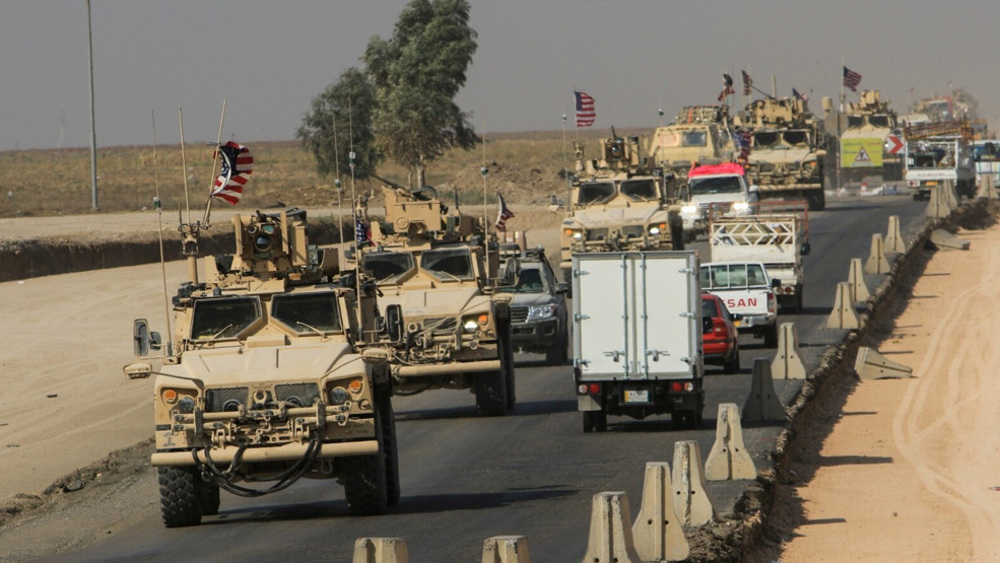
US arms convoys enter Iraqi Ain al-Asad base from Syria: Report
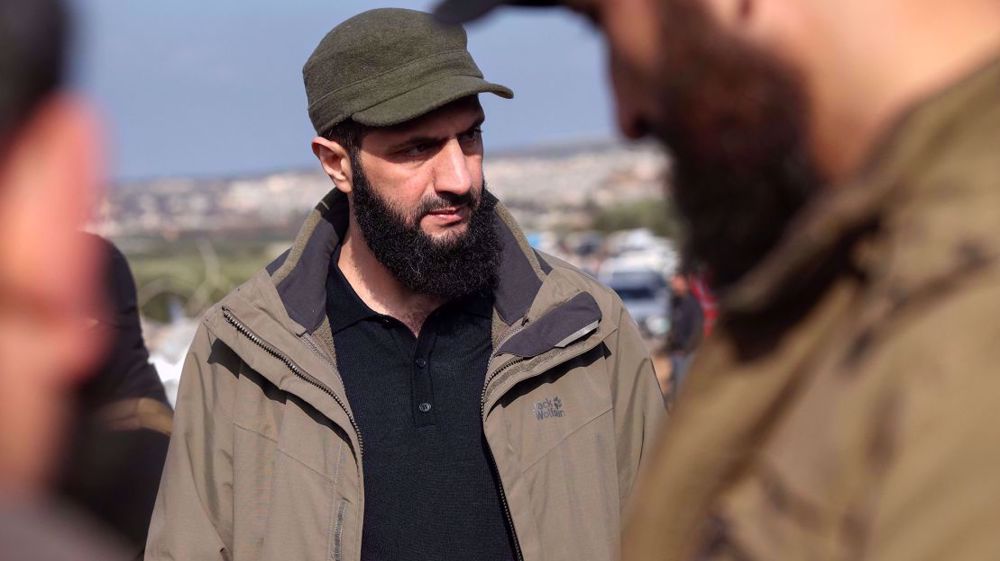
Syria’s self-proclaimed president can be arrested if he visits Baghdad: Iraqi figure
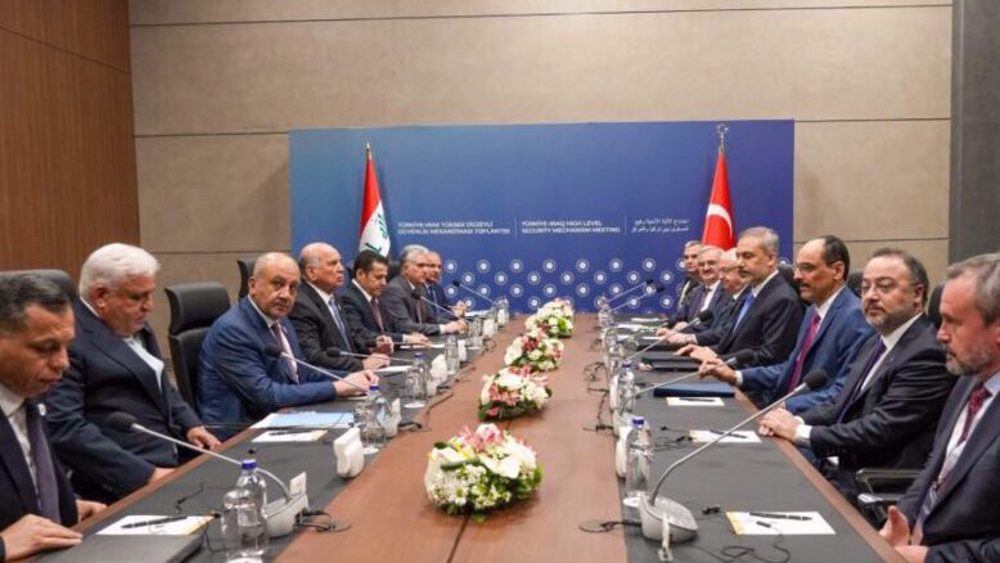
Iraq warns Daesh threats ‘resurging’ in Syria
China sanctions US figures over ‘gross interference’ in Beijing’s affairs
Yemen: US fails in its aggression since day one; Trump ‘accountable’ for fatalities
Russia: Ukraine violated Easter ceasefire using US-made weapons
VIDEO | Press TV's news headlines
Iran says removal of ‘unlawful’ sanctions 'main demand' in every negotiation
VIDEO | Iran-Africa partnership
Pope Francis conveyed true compassion to people in Gaza amid genocide: Bethlehem pastor
Israel revokes visas for 27 French MPs after Macron signals support for Palestinian state


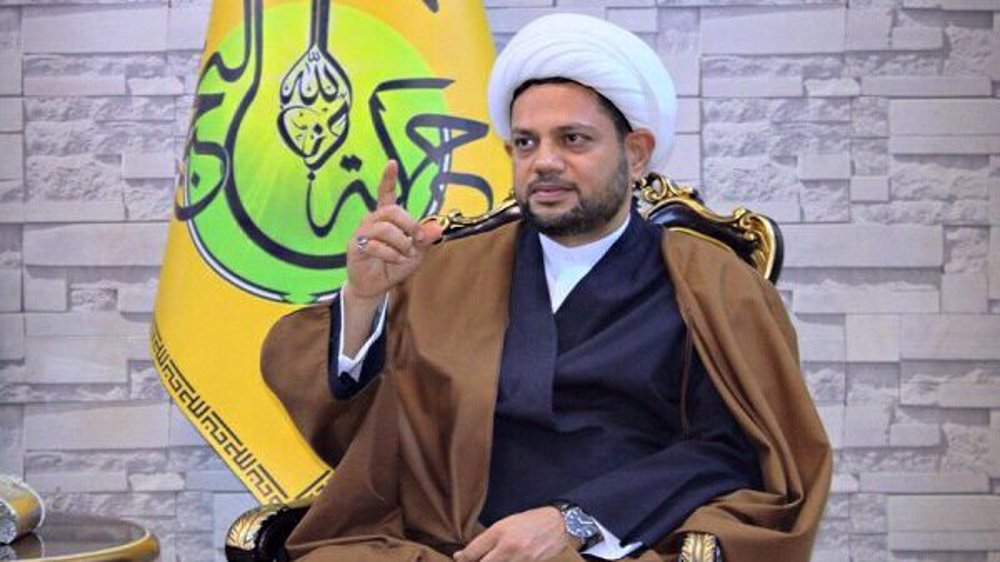
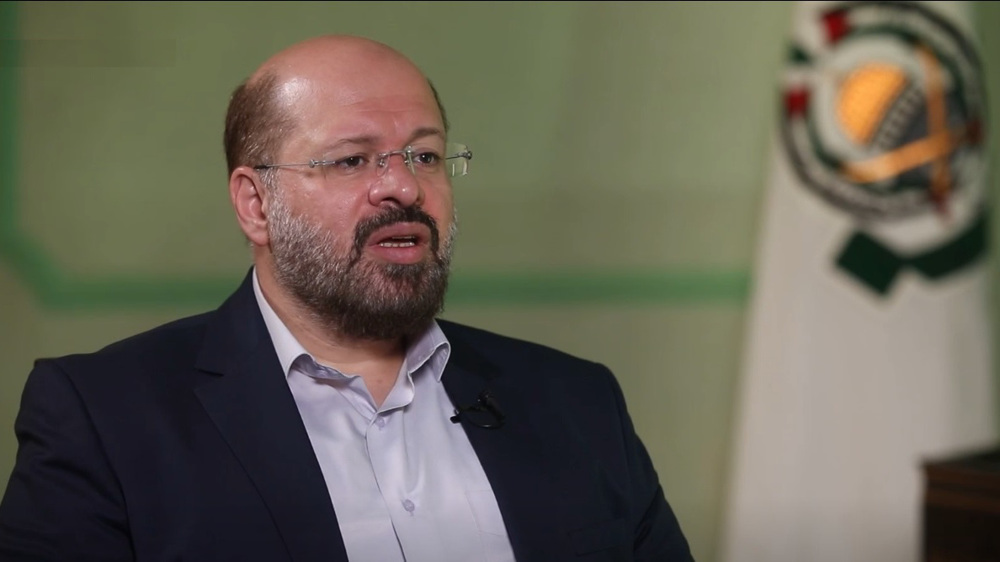




 This makes it easy to access the Press TV website
This makes it easy to access the Press TV website